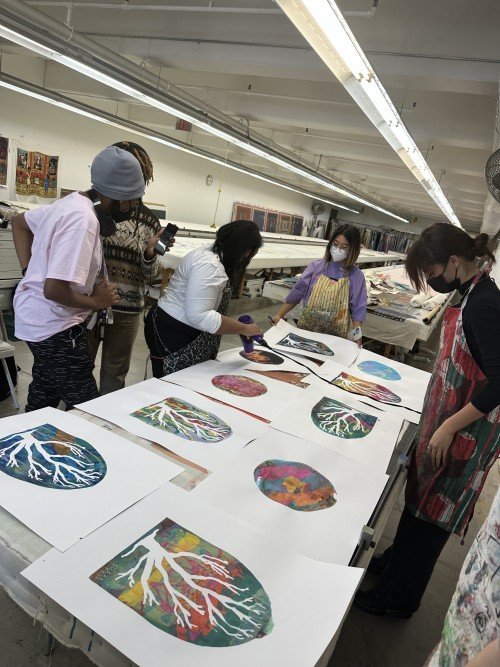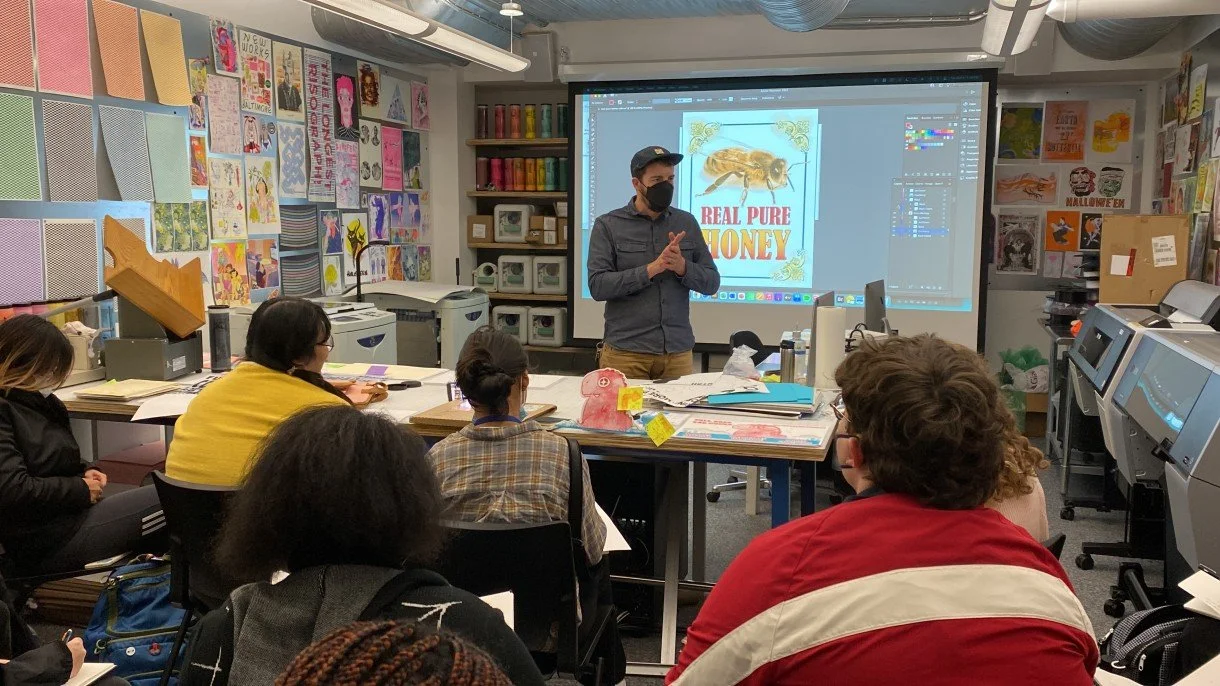-
MICA’S First Year Fellows in Creative Entrepreneurship is a year-long program for incoming first-year students focused on integrating studio research with emergent technologies, project-based learning, professional practice, and financial literacy. This community will allow you to explore the entrepreneurial mindset and gain the knowledge and skills to propel your studies at MICA and help to prepare you for a wide range of creative professional careers that support a purposeful and successful life.
-
Entrepreneurial minded students of all interests and backgrounds can apply to be a part of the First Year Fellows program. First Year students who have been admitted to MICA for Fall 2026 are eligible to apply for the program.
-
Enrollment in co-taught First Year Experience classes that examine entrepreneurial and professional practices.
Special access to Make Cool Stuff Laboratory in Leake Hall through sign-up process
Fellows Talks with entrepreneurs & industry professionals
Fall and spring field trips that emphasize the creative industries (all transportation, meals, lodging included) *dependent on MICA operational mode.
Course-specific Materials Fund ($250 per semester)
Low faculty-to-student ratio- approximately 10 students to 1 faculty member
Financial Wellness and Professional Practice Workshops
-
Students selected for this experience will live together in Leake Hall, be enrolled in entrepreneurial-focused First Year Experience classes, and participate in co-curricular programming specifically designed to support budding entrepreneurship. A designated community just for FYF students.
Application Deadline- March 1, 2026
-
Application Guidelines:
In a 1-2 minute video or a 750-word essay, answer the following questions:1. Why are you interested in MICA's First Year Fellows in Creative Entrepreneurship program?
2. What are you passionate about?
3. What unique qualities will you bring to a live-learn community that is focused on Creative Entrepreneurship?
Application Considerations:
Your candidacy will be considered by a jury of faculty and staff that will review your video or essay as well as the portfolio you submitted in Slideroom as a part of your application to MICA.
Important Dates & Deadlines
Info Session- Recording and PowerPoint Slides
Sunday, March 1, 2026 // 11:59 pm | Application Deadline - APPLY *
Friday, May 1, 2026 | Application review concludes
Monday, May 4, 2026| Accepted fellows are notified by email
Monday, May 25, 2026 | Student program confirmation letter & declaration of intent to attend MICA due
Courses for Fall 2026 and Spring 2027
-
The course teaches first year students fundamental skills related to 2D color and design to explore design principles with color theory. Design principles include visual organization such as composition and pattern and all visual elements including text that work together in a piece of art or design. Color theory includes additive (RGB) and subtractive (CMY) color differentiation and application in physical and digital forms, color contrasts, optical illusions, and physio-psychological effects of color. The combined skills of learning design and color help students explore 2D art and design with digital and mixed media for creating work with intention, meaning, and narrative while considering the cultural impact of design and color.
Using the creation of a product as a vehicle, FYF students will also:
Apply messaging to formal layouts in order to engage in markets
Engage in audience research and evaluate the outcomes
Create an audience specific or client specific project
Utilize branding as a means to turn artwork into a product that ha economic viability.
Develop pitch-building skills, including public speaking and preparing printed matter, slides and video, to present your work to stakeholders
-
The course teaches first year students fundamental fabrication skills related to 3D art and design for creating objects in space and the relationship to body, technology, and the material environment. The 3D art and design fabrication process are introduced for material exploration and spatial literacy that extends to multi-dimensional form with digital media. With conceptual framing and the iterative process, making 3D work involves selecting appropriate materials, learning tools and shop safety, and considerations of environmental sustainability.
Using the creation of a product as a vehicle, FYF students will also:
Combine 3D learning with entrepreneurial strategy and collaboration
Apply 3D skills and fundamentals to help innovate and solve potential entrepreneurial problems
Identify rational avenues for entrepreneurial success through the use of 3D techniques and tools, and iterative work processes





